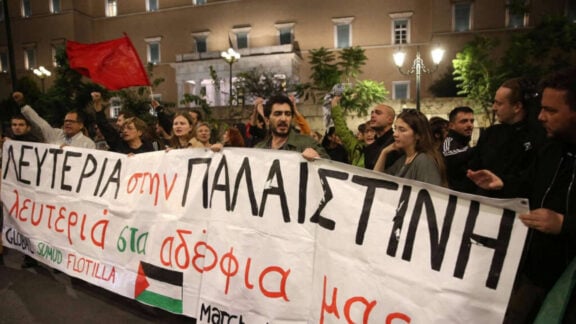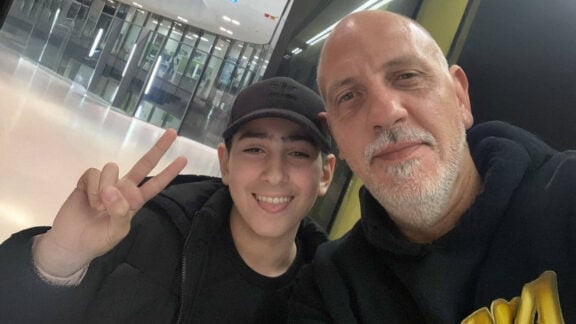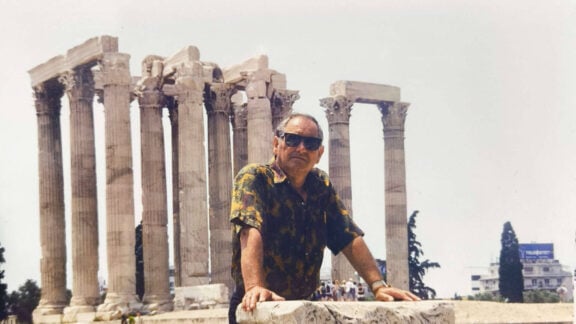Over the past few weeks, the Greco-Roman past has been centre stage on social media. From reports about men thinking daily about the Roman Empire to breathless–and sometimes contentious–coverage of the release of Emily Wilson’s new translation of Homer’s Iliad, one might imagine that this is a great time to be a student or scholar of the ancient world. And given the logic of public relations in the 21st century, when any publicity is good, it certainly is.
The problem is that this surge of interest is not bringing additional funding or hordes of students to humanities classrooms (at least not yet!). There are curricular movements to re-centre the classics in the college curriculum. Somewhat lost in the noise over Imperial Rome and the Iliad is the uncertain news that the New College of Florida plans to return to a “classical education” with a full-year course on the Odyssey as a centrepiece.
New College has suffered some of the worst effects of Florida Governor Ron DeSantis’ war on higher education. The small honours college has lost a third of its faculty and seen itself turned over to conservative ideologues. Part of their plan is to follow the lead of Florida’s recent limiting of the teaching of critical race theory, gender and sexuality, and other postmodern movements by doubling down on the so-called Western Tradition.
By next academic year, all first-year students at the public college will be required to take a course on the Odyssey as part of what is claimed as a curriculum that centres “logos and techne”. The Odyssey is part of a logos sequence that addresses “enduring Human questions”.
An entire semester course on the Odyssey could be transformative if read in an interdisciplinary, historical, and sometimes transgressive way. Odysseus’ journey is a story of a survivor, but not necessarily someone we should emulate. We see him demeaning others and, through his narrative, reinforcing ideas of gender, sexuality, civilisation, and power that are central to some of the worst offences of subsequent European cultures that so prized his tale.
Homeric epic is not simplistic; instead, it is an invitation to question values, to come to a greater understanding of personhood, and to weigh important moral and ethical issues. It has enduring power because it induces something like a Socratic state of aporia: the epics provide no simple answers, no clear directions.
They introduce questions and complexities for life-long engagement and learning. With my colleague Rajesh Sampath, a continental philosopher specialising in postmodern thought and critical race theory, I have taught a course that centres the Odyssey in essential ways. We read the epic alongside other texts and traced the construction of identity and the establishment of what it means to be human from ancient Greece to today through shifting lenses of philosophy, power, gender, sexuality, post-colonialism, and race. We read Plato, Augustine, Maimonides, Rousseau and then Wollstonecraft, Dubois, de Beauvoir, Said, Butler, Lorde and more. We moved back and forth through intellectual traditions to trace the difficult path of who counts as a human being through the history of what we now call the West.
But you could not teach such a course in Florida because it is against the law.
Without these critical frameworks, students there will be left with a superficial tour through a heroic tale that is anything but straightforward. Bereft of these broader intellectual traditions, students can end up with propaganda used in the past to justify slavery, colonialism, and misogyny.
And this is such a significant loss because studying literature can be liberating. Ancient authors would likely have been excited at the Odyssey’s central place in a curriculum. But their idea of reading Homer probably differed from what we’ll see at the New College. As Robert Lamberton makes clear in his book Homer the Theologian, most audiences from the Archaic period onward saw the Homeric epics as allegorical, providing indirect or occult knowledge.
But others positioned Homeric epic as a way of understanding ourselves. Aristotle quotes the rhetorician Alcidamas as calling the Odyssey a ‘fine mirror of human life'” (Rhetoric 1406b), while the biographer Diogenes Laertius reports that the Cynic Diogenes complained that “scholars were studying Odysseus’ sufferings but remained ignorant of their own (Lives of the Philosophers 6.27).
Without access to a full range of human knowledge and experiences, teaching and learning from the Odyssey promises mainly a fantastic tale in adoration of violent heroes. When pursued critically and honestly, reading epic is about understanding the dangers exceptional men present to the world and why we might not need them at all.
I hope New College students will find the hidden meanings in the Odyssey themselves and learn from it to challenge the simplicity of their education. I fear they will be induced to cosplay as Odysseus, a man who does whatever he needs to survive, even if it means losing all of the men he led to Troy and the murder of his fellow citizens when he returns home.
Joel Christensen is Professor and Senior Associate Dean for Faculty Affairs at Brandeis University. He has published extensively and some of his work include Homer’s Thebes (2019) and A Commentary on the Homeric Battle of Frogs and Mice (2018). In 2020, he published The Many-Minded Man: the Odyssey, Psychology, and the Therapy of Epic with Cornell University Press.









